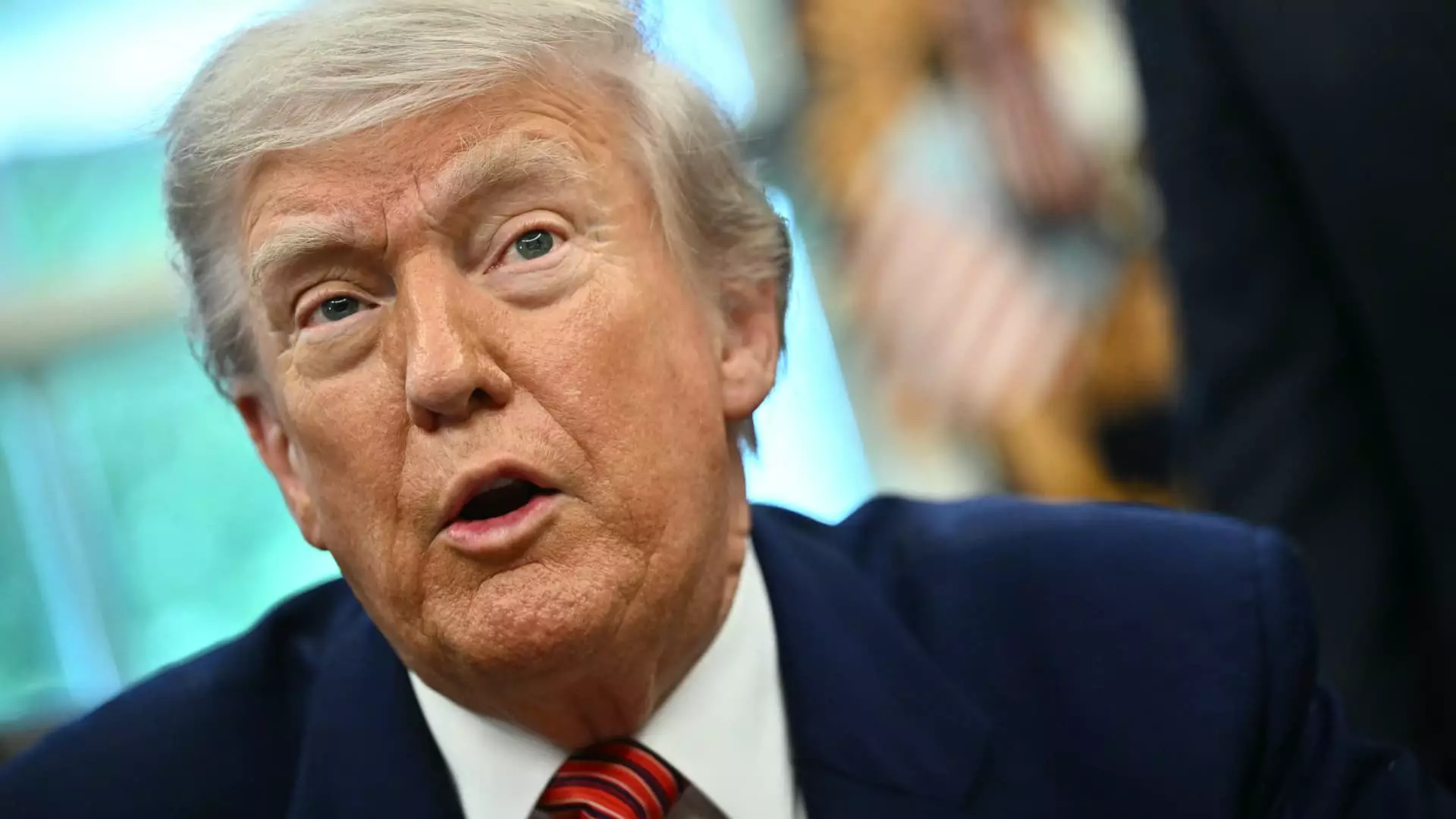During his speech at West Point’s commencement, President Donald Trump proclaimed the era of graduates as heralds of the “golden age of America.” This claim is a bold one, riddled with undertones of grandiosity and self-aggrandizement. Trump’s rhetoric frequently centers around inflating his and his administration’s achievements while belittling those of his predecessors, creating a narrative that often lacks substance in its ambitions. To frame this moment as a “golden age” is not merely optimistic; it leans into a dangerous form of jingoism, glossing over the complexities that characterize contemporary America. With such a statement, one must wonder: to what extent is “greatness” being measured, and are we truly at the zenith of our power as a nation?
The Military: A Tool for Political Posturing
Trump’s assertion that he has “rebuilt” the U.S. military is indicative of a larger trend where the military serves as a backdrop for political theater. While it is undeniable that military strength is crucial for national defense, the intertwining of military rhetoric with campaign-style discourse raises concerns about the military being co-opted for political ends. The phrase “America First” encapsulates a worldview that can alienate allies and overemphasize militaristic solutions to complex global challenges. When Trump speaks of dominance and annihilation, one must question if his administration’s approach is genuinely strategic or merely performative, designed to rouse nationalistic sentiments rather than foster global stability.
Divisiveness Dressed as Liberation
Trump’s mention of “liberating” the military from what he terms “divisive and demeaning political trainings” presents a troubling perspective on military education. By targeting diversity, equity, and inclusion (DEI) programs across military academies, the administration appears to be equating inclusivity with division. This stark framing not only undermines the positive aspects of a diverse armed force but also makes a disturbing statement about the administration’s broader values. In a world growing increasingly polarized, the move to eliminate DEI efforts can hardly be seen as an improvement; instead, it signals a regression into an exclusive mindset that could diminish the capabilities and morale of the military in the long run.
Redefining Respect: A Misguided Approach
The President’s declaration that soldiers are being respected “more than any army anywhere” is another case of hyperbolic language clouding judgment. Respect in military terms is often earned through actions rather than proclaimed in speeches. The real test of the military’s respect and reputation lies in their conduct in the field and their treatment of personnel, not merely in grandstanding rhetoric. This disconnect demonstrates that fostering respect entails much more than political proclamations; it requires concrete actions, integrity, and a commitment to the values that uphold the very fabric of the armed forces.
A Shift in Military Culture
The changes being rolled out, including the dismantling of cultural clubs and the censoring of educational materials, represent a significant shift in military culture. While supporters may argue this creates focus, it risks erasing the rich tapestry of backgrounds and perspectives that strengthens the military. To strip away these aspects in the name of “unity” or “respect” is ironic, considering such moves may lead to disenfranchisement rather than cohesion. The long-term implications of these changes could result in a less adaptable and culturally competent military at a time when global dynamics demand nuanced understanding over brute force.
In essence, Trump’s West Point address reflects a blend of bravado and political strategy that raises more questions than it answers about the true state of military strengths and the values that should guide them in the modern world.


Leave a Reply